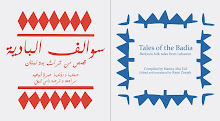Dear Laila has kindly provided a translation of my Al Akhbar article
The Flames of Occupation
Rami Zurayk
The Occupy movement arose spontaneously in several areas of the world. Its momentum was inspired by the Arab protests, particularly those in Tahrir Square during the Egyptian uprising. This global movement, which demands social and economic justice, is famous for its occupation of Wall Street in New York, the beating heart of capitalism.
This was in September 2011, when the flame of popular “occupations” spilled into the streets and public spaces of over 25 countries, from Hong Kong to London, before the authorities suppressed them and emptied the streets and squares of protestors. But the movement did not end with this first wave of activity. Although it may have shrunk somewhat, it still is an effective channel for political and social activity, especially in the countries where it started.
On 22 April, a group of hundreds of environmental and agricultural activists occupied a piece of land owned by the University of California, Berkeley. They planted thousands of saplings and seeds and declared it a public farm. They were protesting against a plan to sell the piece of land to a real estate development company, who would have turned it into houses and commercial buildings. The protestors demanded that their right to produce their own food be recognized in a world where food is controlled by a handful of giant corporations.
This is a radical change for the Occupy movement, which had been described as hippy and lazy. It has moved from verbal protest to productive work. No matter how symbolic, this act challenges the principle of private land ownership, one of the main obstacles impeding the improvement of rural people’s living conditions. It is also a crucial part of the process of the redistribution of resources. For example, Honduras has recently witnessed a farmers’ movement, which included over 3500 poor rural families, who took possession of vast tracts of agricultural land owned by the government. They began to reclaim it and plant it.
I wonder, will these activities and protests spread to the Arab world, just like the protests in Tahrir spread to Wall Street?
The translated article can also be found in Al Akhbar English here http://english.al-akhbar.com/content/spark-occupations
The translated article can also be found in Al Akhbar English here http://english.al-akhbar.com/content/spark-occupations








+081.jpg)


